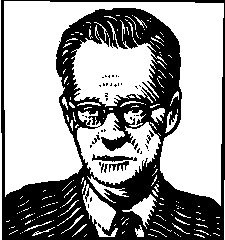In his controversial classic, Beyond Freedom and Dignity (New York: Alfred A. Knopf, 1971), B.F. Skinner proposes a scientific model for the study of human behavior and challenges the traditional theory of man as a purposeful, autonomous being with personality traits, will, and emotions. He dismisses the metaphysical construct of “mind†as a motivator of behavior, limiting his analysis to what can be observed, and presents behavior as the product of the genetic endowment an individual has received from evolutionary processes and of his encounters with the external environment.

Skinner begins by examining commonly held beliefs about freedom and dignity, underlying social values based on personal responsibility for conduct as well as the expectation of credit for one’s accomplishments. He argues that the environment – not some internal, autonomous agent – assumes the role of supreme controller, shaping behavior by a predictable system of positive and negative reinforcers derived through evolution. Both the struggle for freedom from aversive stimuli and the pursuit of worth through the admiration of others are therefore conditioned by the contingencies of reinforcement. Feelings which seem to motivate behavior are actually by-products of the factors which elicit it. Based on this premise, Skinner claims that “it should be possible to design a world in which behavior likely to be punished seldom or never occurs†(66).
The key to solving global problems that have brought humanity to the brink of destruction, according to Skinner, lies in improving human conduct rather than character. In describing the reinforcers which operate within a social context, Skinner draws a parallel between the evolution of species and of culture, which he defines as the social contingencies or behaviors elicited by a particular group and their reinforcers (128). Natural selection is seen in the culture’s adaptation to the environment, the probability of its survival being determined by the extent to which it meets members’ needs for sustenance and security. New practices, like genetic mutations, are transmitted only if they contribute to the culture’s survival.
Espousing the principle that behavior can be modified by changing the conditions of which it is a function, he proposes a culture designed according to the paradigm of a scientific experiment. Such a project would establish contingencies that induce people to act for the preservation of the culture. Anticipating critics’ objections, Skinner cites the reciprocal relationship between controller and controlled inherent in the scientific method, redefines “unethical†as the producing of aversive consequences, and suggests that the favorable environment would more than compensate for imposed restrictions.

B. F. Skinner (March 20, 1904 – August 18, 1990)
Skinner’s reductionist definition of the self as “a repertoire of behavior appropriate to a given set of contingencies†(199) questions basic assumptions about the nature of human beings, dispossessing man of intention, stored knowledge and internal agency. In seeking a technology of behavior as the solution to apocalyptic problems, Skinner deems inaccessible inner realities non-existent and justifies social manipulation in the name of cultural preservation. While providing a rationale for this theoretical utopia, the book lacks details on precisely how or by whom it would be designed. In drawing an analogy between social engineering and carefully controlled variables of the laboratory setting, he ignores the complexities of human interaction. Skinner’s optimism about the future of the scientific study of behavior has been affirmed through increasingly sophisticated research. Ironically, the insights gained through such technologies as MRI show behavior modification to be far more difficult than Skinner imagined, causing one social scientist to remark, “Under the most rigorously controlled conditions of pressure, temperature, humidity, and other variables, the organism will do exactly as it pleases.†It seems that, far from being automatons, individuals do indeed have a mind of their own.
Reviewed by guest blogger Karen M. Hatcher
